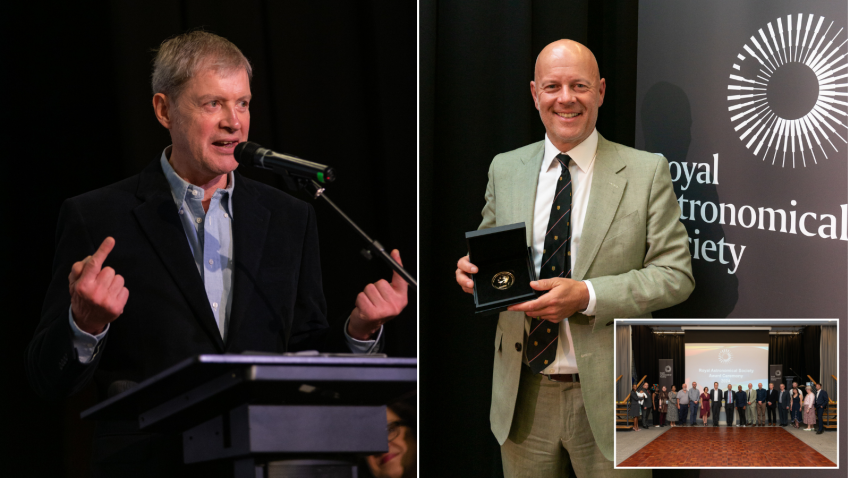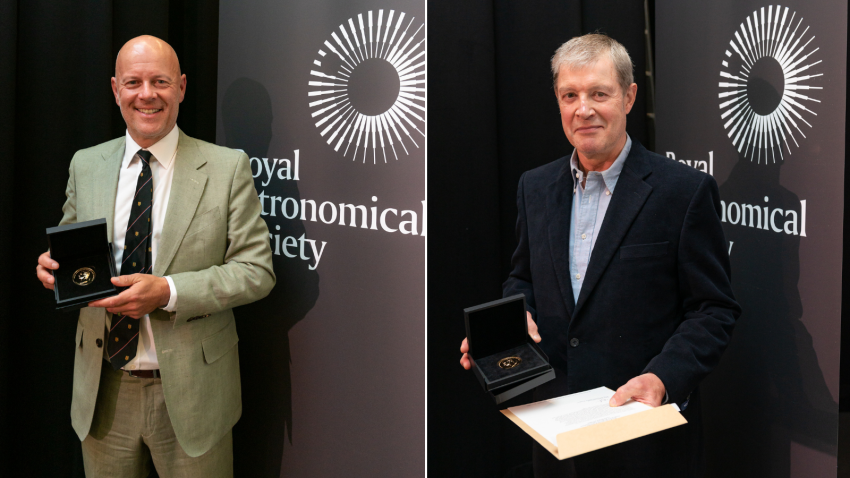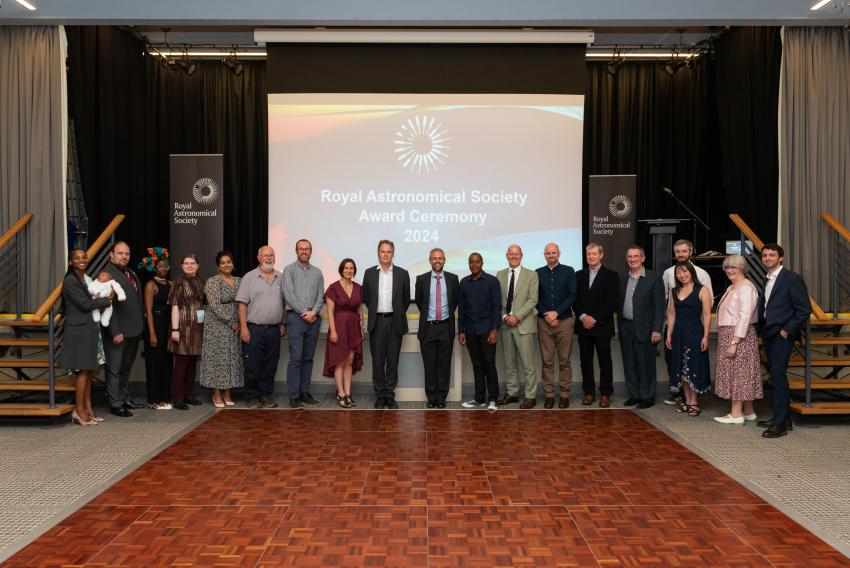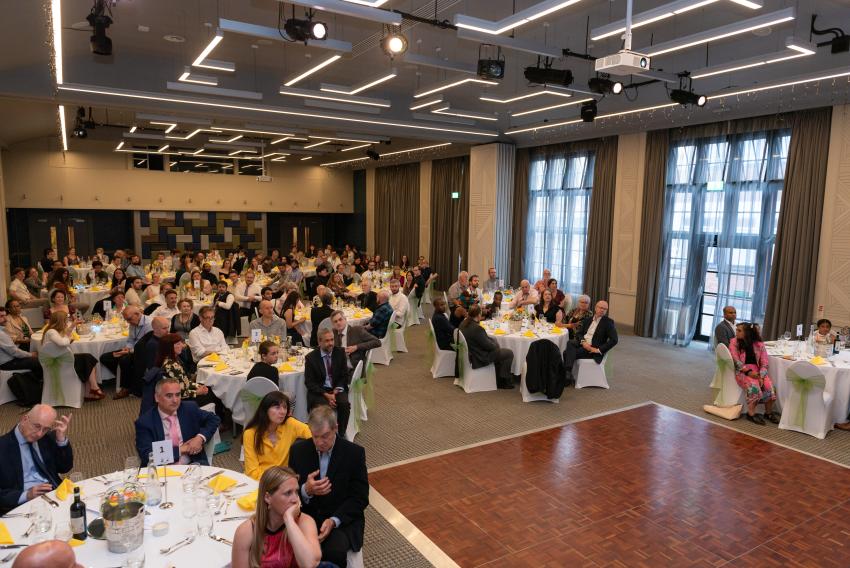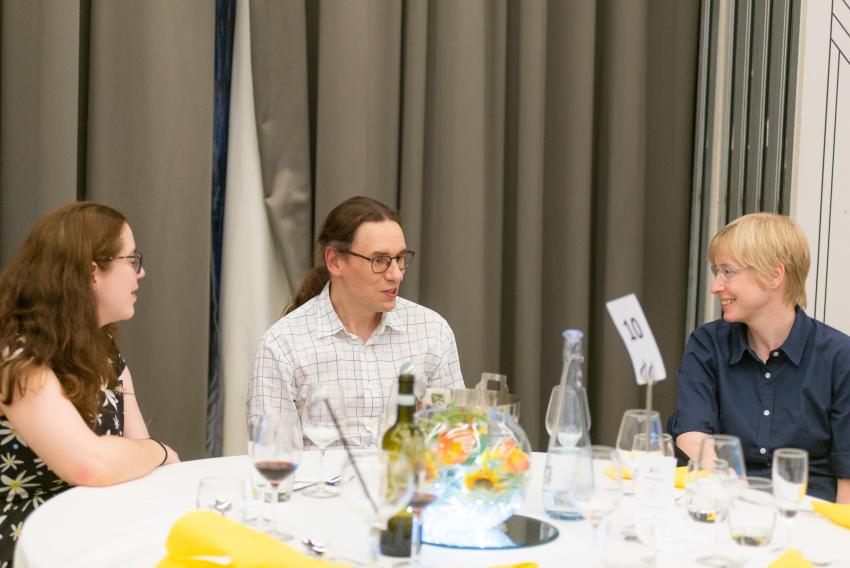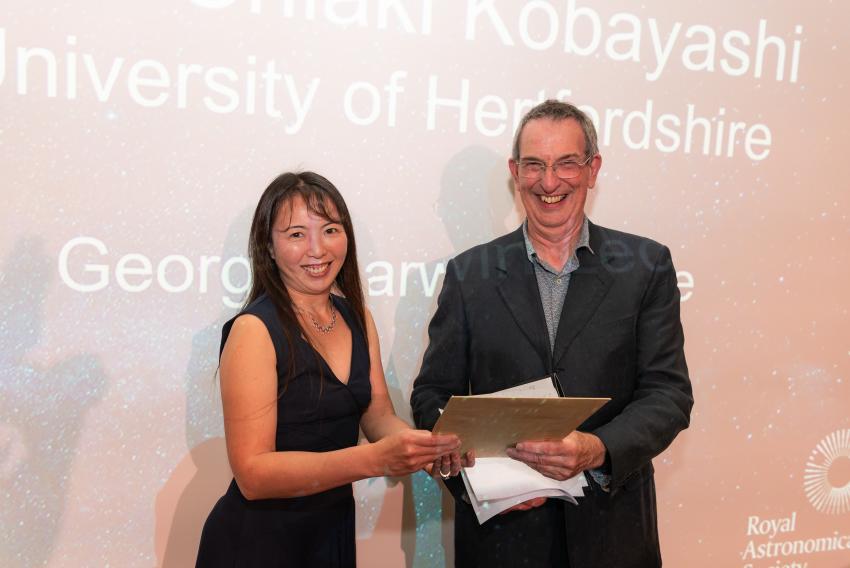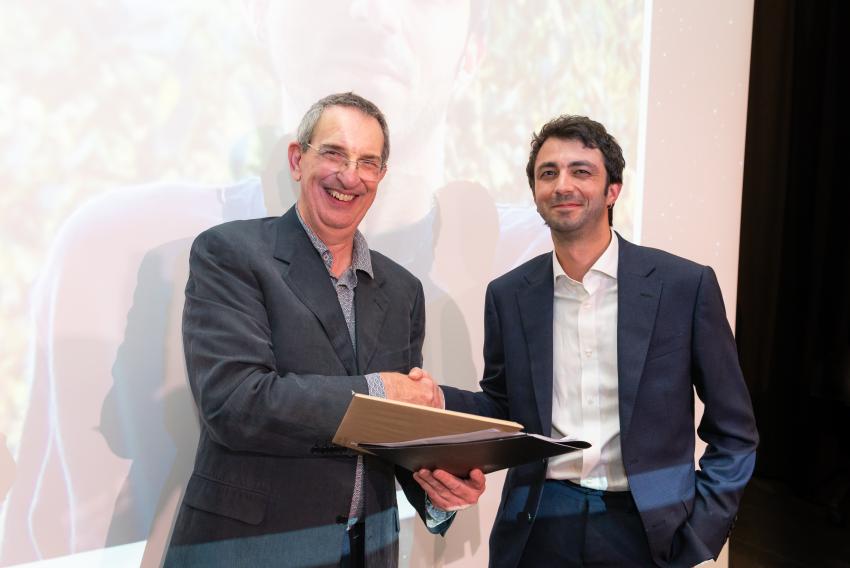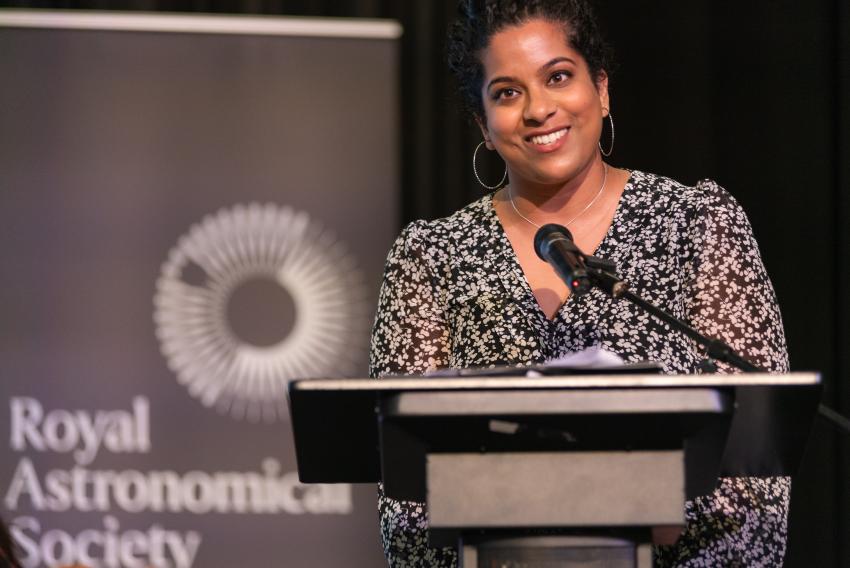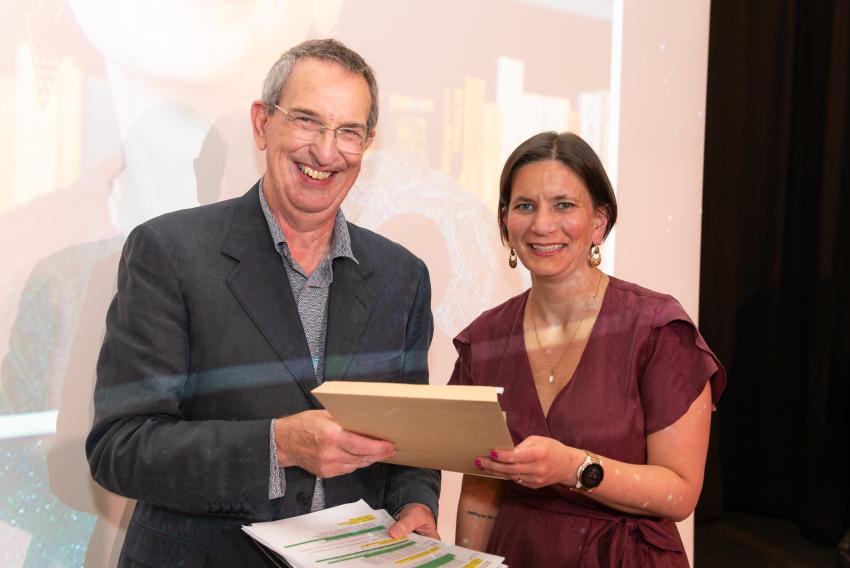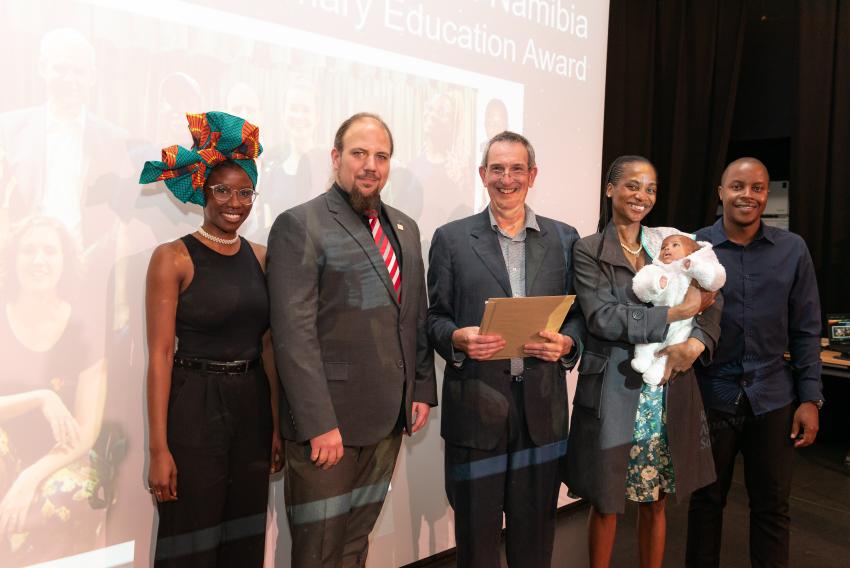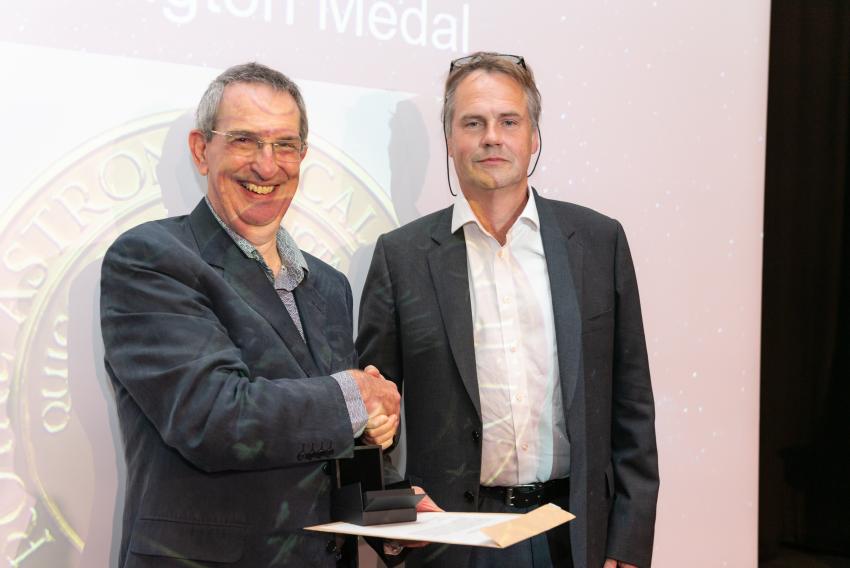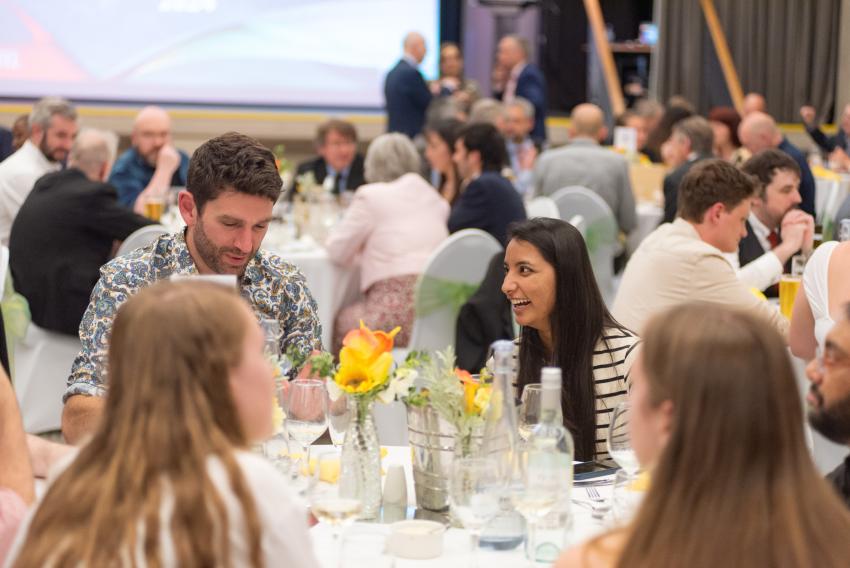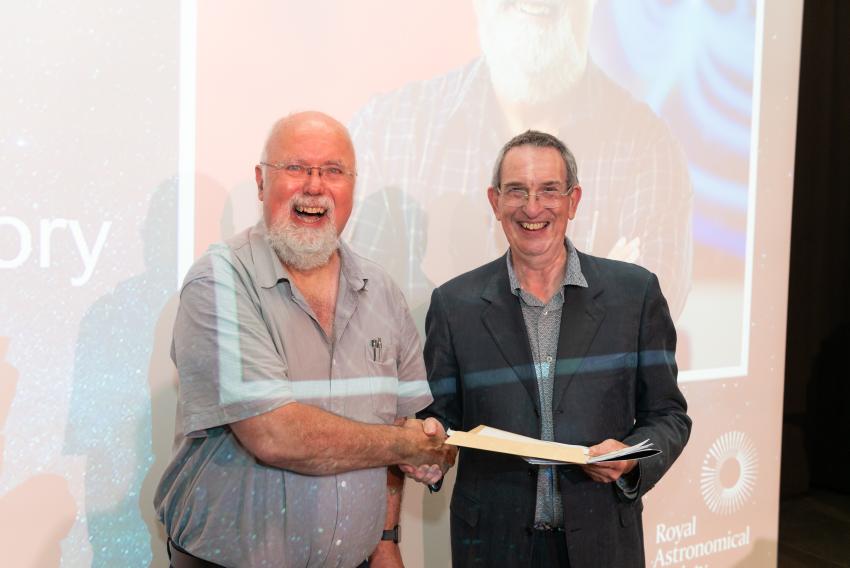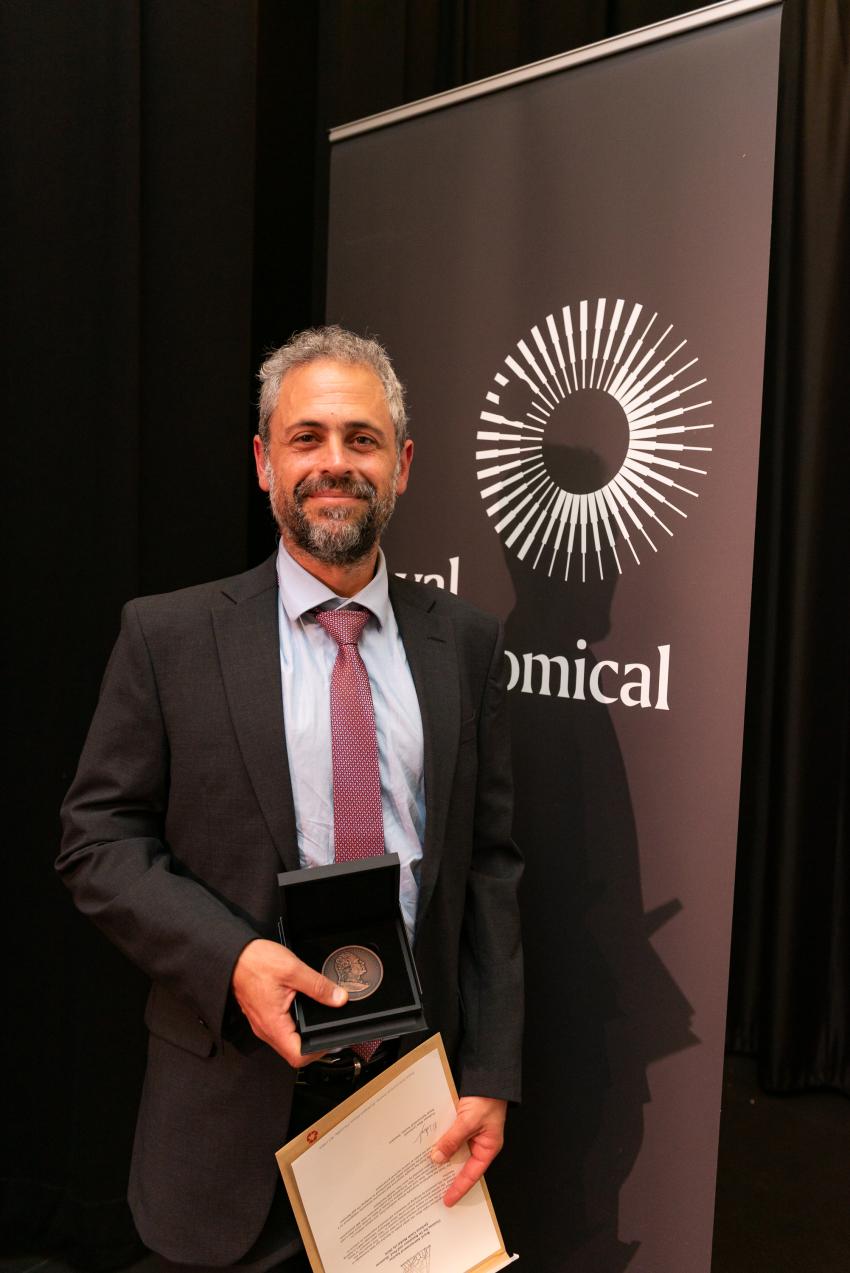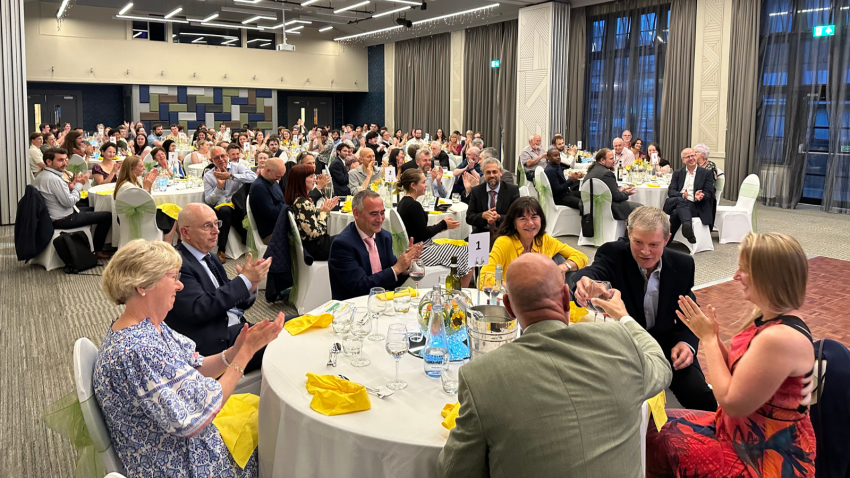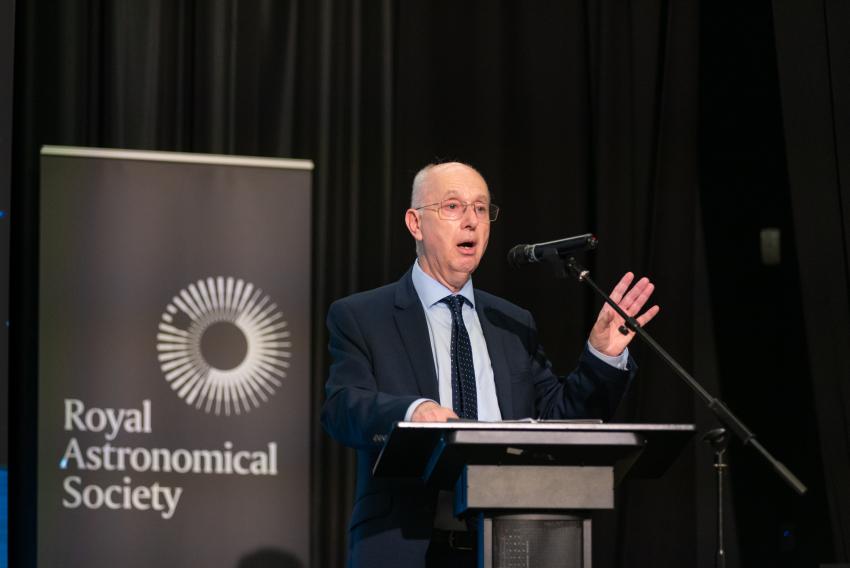Winners of this year’s Royal Astronomical Society Awards were presented with their prizes at a special celebration at last week’s National Astronomy Meeting in Hull.
They included Gold Medal winners Professor John-Michael Kendall - a geologist whose career has taken him to the hottest and coldest places on Earth - and astrophysicist Professor Gilles Chabrier, who spoke of his delight at being recognised by “one of the most prestigious societies in the world”.
Professor Chabrier, of the Ecole Normale Superieure de Lyon, CNRS and University of Exeter, told the audience at an awards dinner at the University of Hull that he “couldn’t believe” he had won a medal previously given to the likes of Albert Einstein, Arthur Eddington and Stephen Hawking.
He added: “All I’ve tried to do in my whole life is try to do my best. Therefore, maybe it’s not that bad a philosophy for young people.
“Whatever you do, try to do your best, and you’ll be happy!”
Professor Kendall, of the University of Oxford, paid tribute to his parents, wife Freya and the Royal Astronomical Society (RAS), before adding: “I’d really like to thank all the young scientists I’ve worked with – that’s the reason I’m here.
“Particularly, scientists from developing countries have been a real pleasure to work with, where you get to see real impact in a short amount of time.”
Professor Kendall received the Gold Medal in recognition of his exceptional work in the field of solid Earth geophysics, while Professor Chabrier was honoured for his outstanding contributions to stellar and planetary astrophysics, and to galactic astronomy.
They join an illustrious list of luminaries in receiving the Society’s highest honour, which dates back 200 years.
Each year the RAS recognises significant achievement in the fields of astronomy and geophysics through a number of awards, medals, prizes and lectureships, encompassing different types of talent from research to education and outreach.
Awards are designated 'A' for astronomy (including astrophysics and cosmology) and 'G' for geophysics (including solar physics, planetary science and solar-terrestrial physics).
The award announcements were made at the Ordinary Meeting of the Society held on Friday 12 January 2024 and presented at the National Astronomy Meeting (NAM) at the University of Hull on Wednesday 17 July 2024.
Among those presented with their prizes last week were George Darwin Lectureship winner Professor Chiaki Kobayashi, of the University of Hertfordshire, Winton Award (G) winner Dr Andy W. Smith, of Northumbria University, and Winton Award (A) winner Dr Chris Lovell, of the University of Portsmouth.
Dr Chris Smith, of Huddersfield New College, collected his Fowler Award (G) prize, while Dr Leah Morabito, of Durham University, was awarded the Fowler Award (A) by RAS President Professor Mike Lockwood.
Dr Ian McCrea, of Rutherford Appleton Laboratory, received his Service Award (G), Dr Keith Bannister, of CSIRO Space and Astronomy, collected the Jackson-Gwilt Medal (A) he was jointly awarded with Professor Ryan Shannon, of Swinburne University of Technology, and Professor Christopher Davies, of the University of Leeds, picked up his Price Medal (G).
Professor Pedro Ferreira, of the University of Oxford, was presented with the Eddington Medal (A), Croydon High School’s Arabi Karteepan was awarded her RAS Secondary Education Award and Professor Gillian Wright CBE collected the Group Achievement Award (A) on behalf of the JWST-MIRI Team.
The Annie Maunder Medal was given to the AMT Mobile Planetarium Team, from the University of Namibia, which included the NAM 2024 meeting’s youngest attendee – a six-week-old baby boy.
Several winners were unable to attend the awards dinner in person but sent a video message– including Dr Nicola Fox, of NASA’s Science Mission Directorate, who was awarded an Honorary Fellowship in the 2024 RAS Awards.
She said: “I have been in love with space since a very, very early age. I was incredibly inspired by my dad throughout my life, and it’s been quite a journey that has led me to NASA.
“Along the way I was incredibly lucky to lead some amazing missions for NASA– in particular the Parker Solar Probe that is flying through the Sun’s corona and illuminating our knowledge of all of the processes that happen that power the solar wind, and of course how that affects us here on Earth.”
Dr Fox added: “Now I have the privilege of leading the whole Science Mission Directorate. That’s about 140 missions at any given time that are responsive to the needs of our communities, as well as always pushing the boundaries of what we know.”
To view and download photos from the awards dinner, visit: https://dbrooksphoto.pixieset.com/20240715nationalastronomymeeting-hulluniversity/ (If used online, please credit Darryl Brooks Photography).
The full list of 2024 winners, with their citations linked as PDF files:
Gold Medal (A): Professor Gilles Chabrier, Ecole Normale Superieure de Lyon, CNRS and University of Exeter
Gold Medal (G): Professor John-Michael Kendall, University of Oxford
Eddington Medal (A): Professor Pedro Ferreira, University of Oxford
Chapman Medal (G): Professor Valery Nakariakov, University of Warwick
Herschel Medal (A): Professor Emerita Roberta Humphreys, Minnesota Institute for Astrophysics
Price Medal (G): Professor Christopher Davies, University of Leeds
Jackson-Gwilt Medal (A): Dr Keith Bannister, CSIRO, and Professor Ryan Shannon, Swinburne University of Technology
Fowler Award (A): Dr Leah Morabito, Durham University
Fowler Award (G): Dr Christopher Smith, Huddersfield New College (Sixth Form)
Winton Award (A): Dr Chris Lovell, University of Portsmouth
Winton Award (G): Dr Andy W. Smith, Northumbria University
Group Achievement Award (A): JWST-MIRI Team
Service Award (A): Professor Ian Robson, Retired
Service Award (G): Professor Ian McCrea, Rutherford Appleton Laboratory
RAS Primary Education Award: Teresa McGrory, St Joseph’s Catholic Primary School
RAS Secondary Education Award: Arabi Karteepan, Croydon High School
RAS Higher Education Award: Dr David Cornwell, University of Aberdeen
Annie Maunder Medal: AMT Mobile Planetarium Team, University of Namibia
'Named' lectures to be delivered at a meeting of the Society:
George Darwin Lectureship: Professor Chiaki Kobayashi, University of Hertfordshire
James Dungey Lectureship: Dr Gabrielle Provan, University of Leicester
Harold Jeffreys Lectureship: Dr Jessica Irving, University of Bristol
Honorary Fellowships:
Professor Ganesan Srinivasan, Raman Research Institute, Bangalore
Dr Nicola Fox, NASA's Science Mission Directorate
To nominate someone for our 2025 RAS Awards, watch the video below on how to do so or visit: https://ras.ac.uk/awards-and-grants/awards. The closing date for nominations is Wednesday 31 July 2024, except for the Education and Outreach Awards, which must be submitted by Friday 27 September 2024.
Media contacts
Sam Tonkin
Royal Astronomical Society
Mob: +44 (0)7802 877 700
Notes for editors
About the Royal Astronomical Society
The Royal Astronomical Society (RAS), founded in 1820, encourages and promotes the study of astronomy, solar-system science, geophysics and closely related branches of science.
The RAS organises scientific meetings, publishes international research and review journals, recognises outstanding achievements by the award of medals and prizes, maintains an extensive library, supports education through grants and outreach activities and represents UK astronomy nationally and internationally. Its more than 4,000 members (Fellows), a third based overseas, include scientific researchers in universities, observatories and laboratories as well as historians of astronomy and others.
The RAS accepts papers for its journals based on the principle of peer review, in which fellow experts on the editorial boards accept the paper as worth considering. The Society issues press releases based on a similar principle, but the organisations and scientists concerned have overall responsibility for their content.


